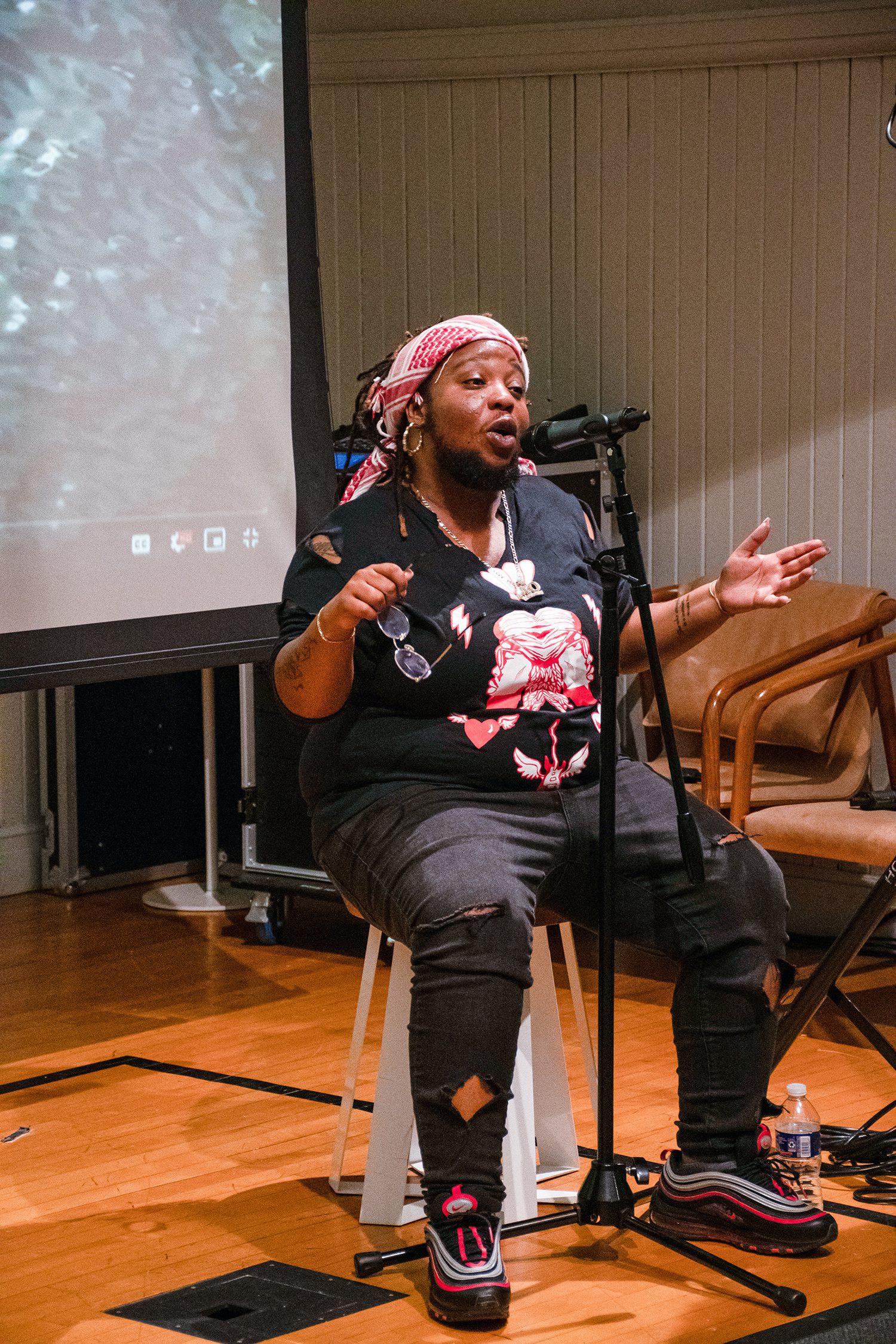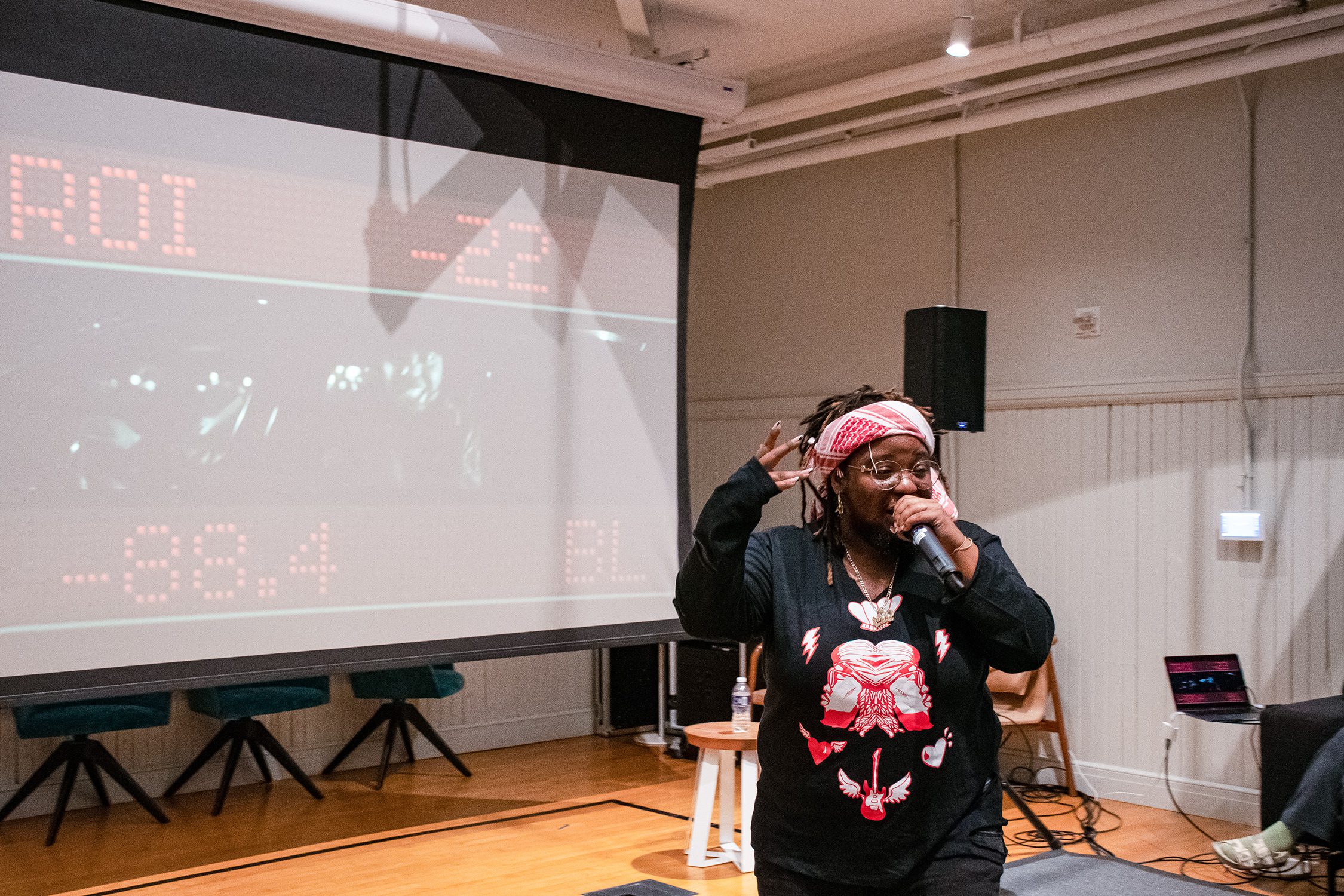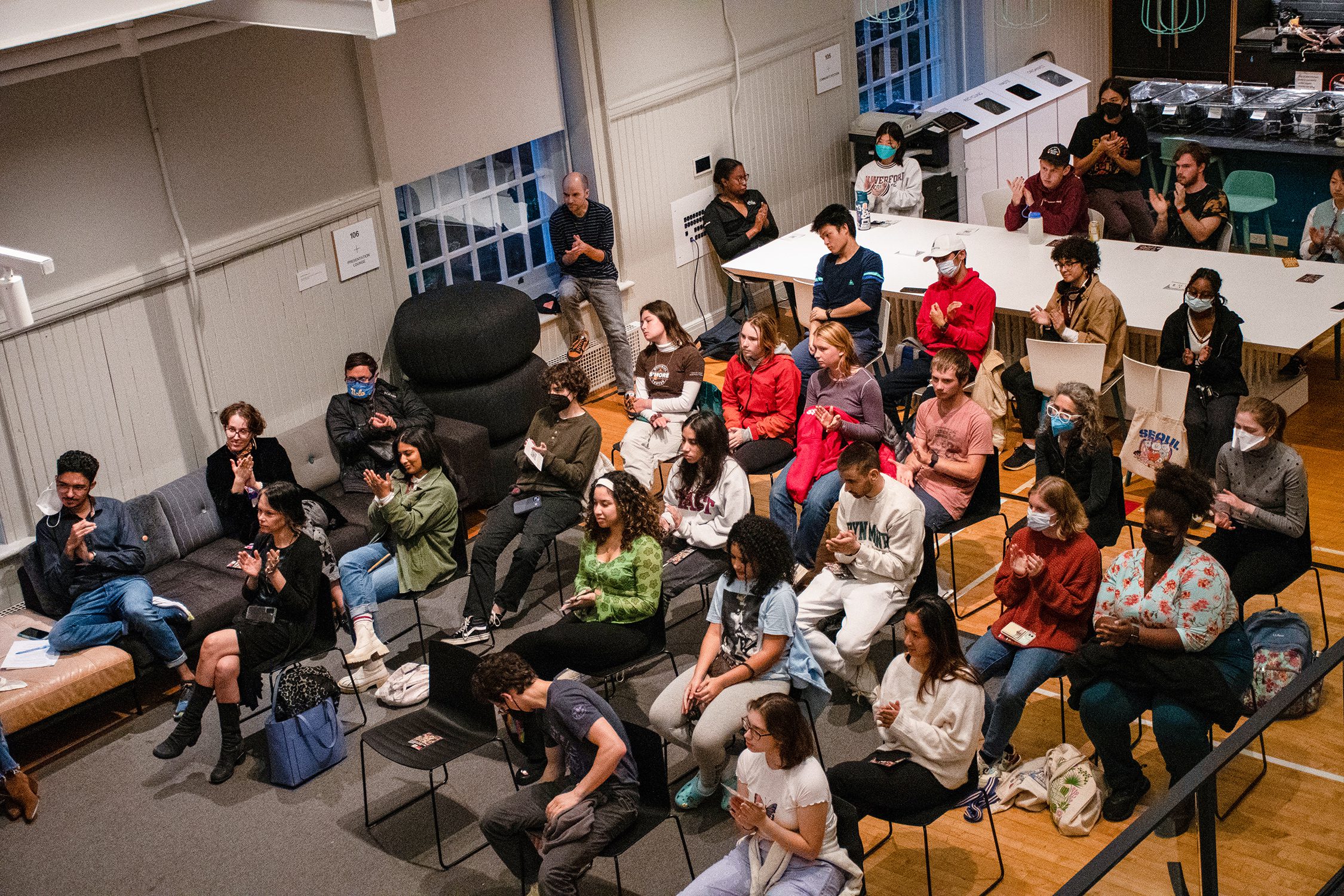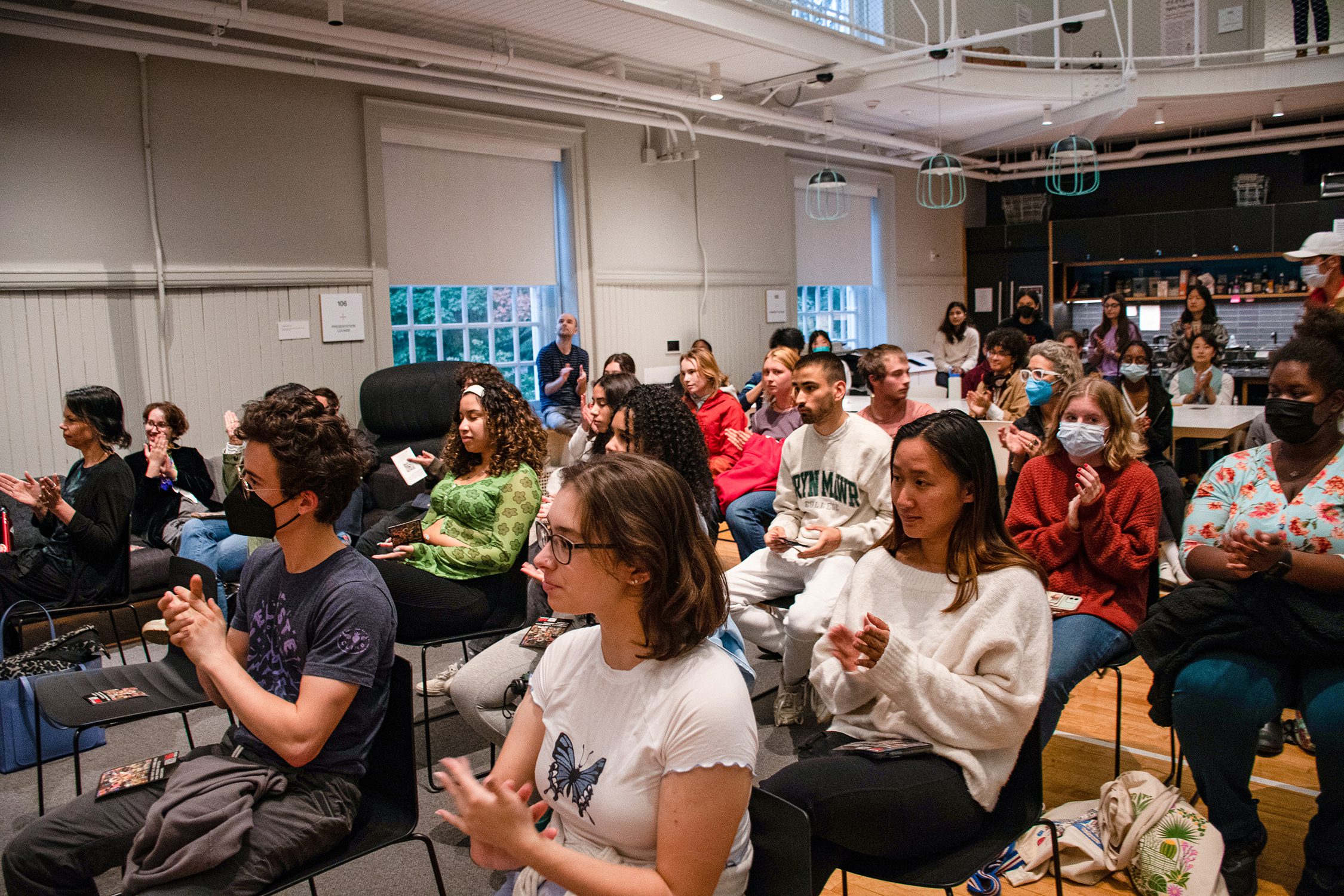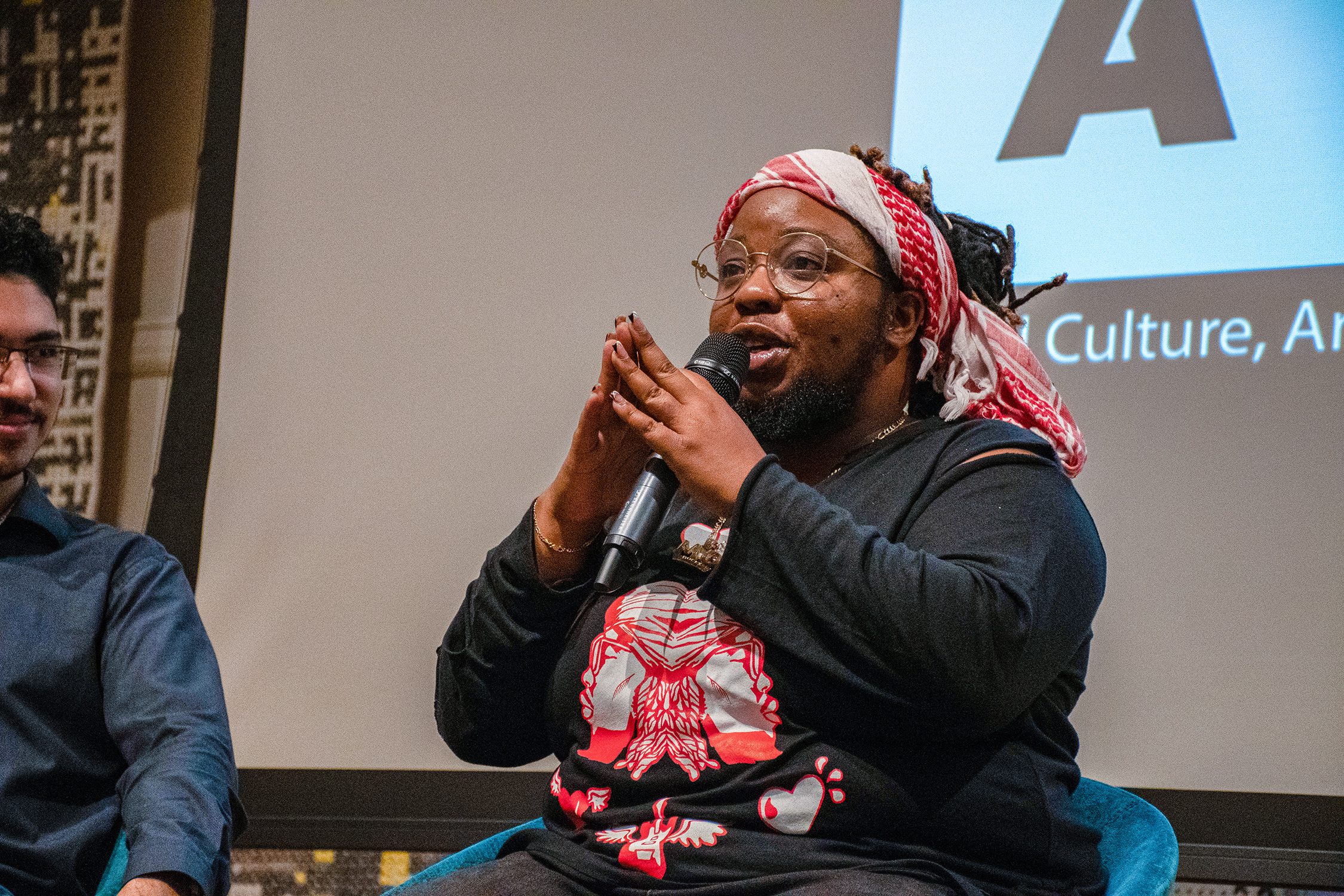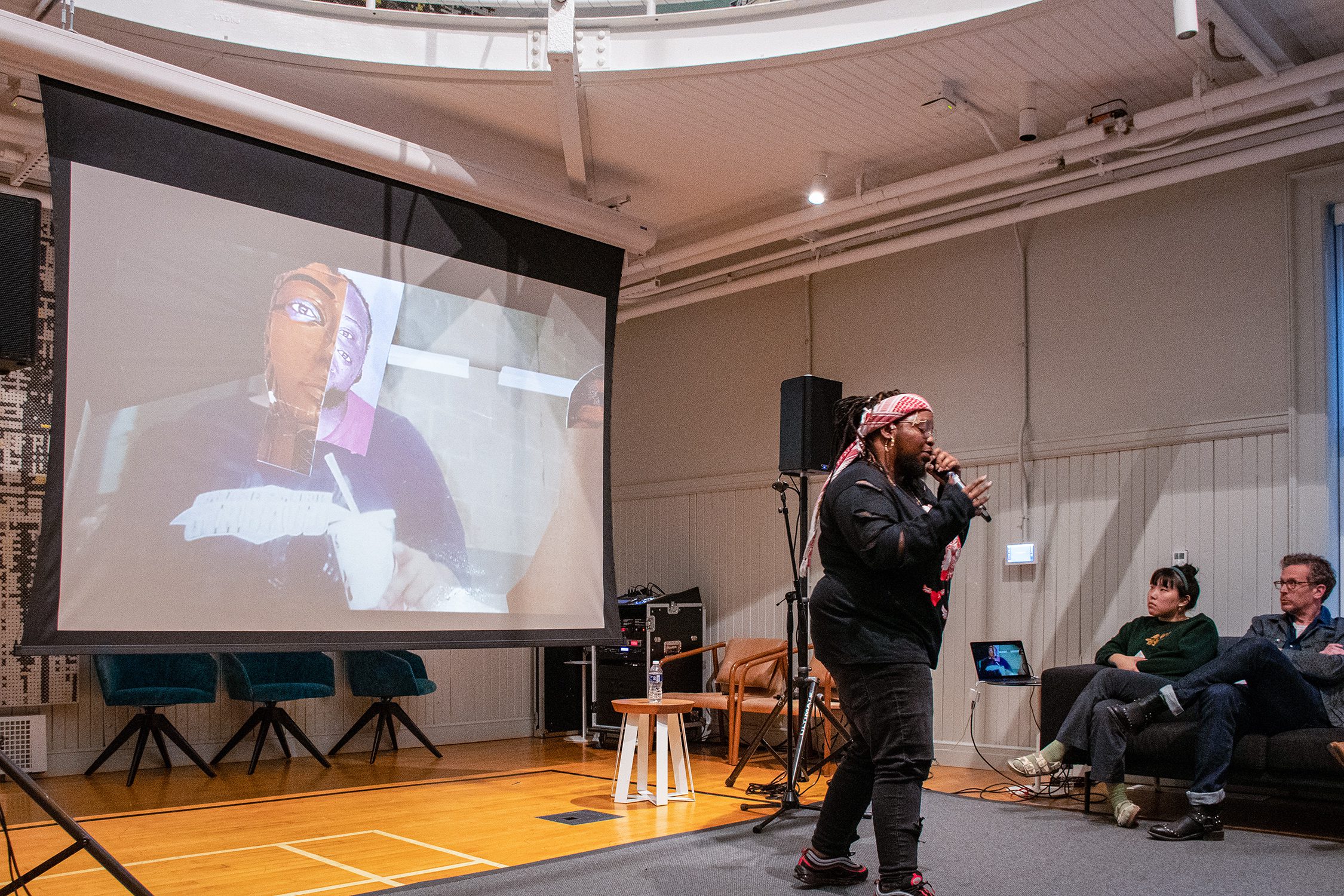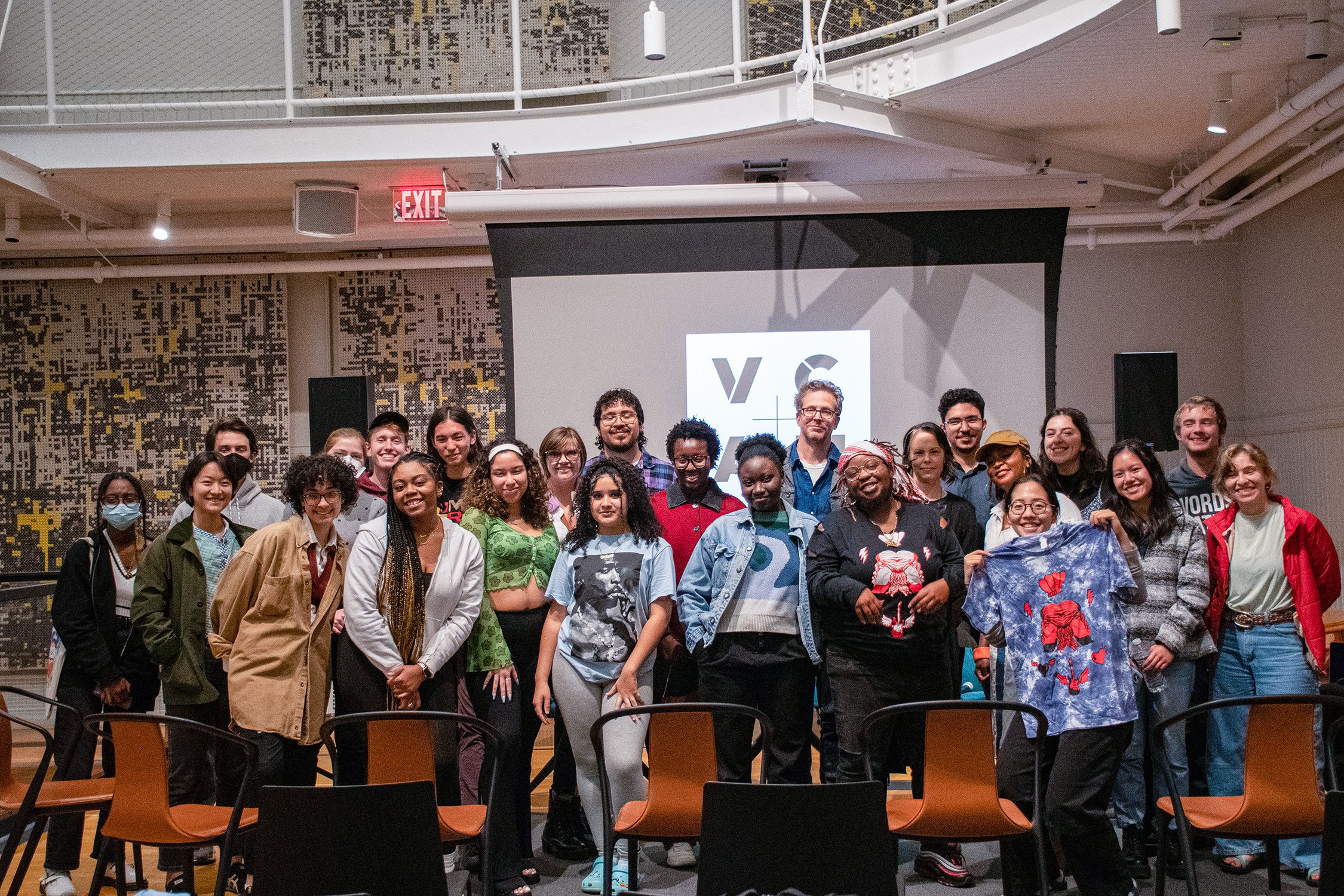The student strike during the Fall 2020 semester inspired reform of institutional curriculum, programming, and equity initiatives within Haverford College. It also inspired William R. Kenan Jr. Professor of English Gus Stadler to think about how the arts and humanities departments at Haverford could contribute to broader change beyond campus.
“The strike organizers linked their efforts to prison and police abolition, which was also a way of showing how the College is caught up in the inequities of the wider world,” Stadler explained. “I also noticed an upswell of interest in carceral issues among my faculty colleagues.”
Stadler organized an informal reading group on the history and stakes of policing and abolitionism with recent Haverford graduates during the summer of 2021. When he became the director of the John B. Hurford ‘60 Center for the Arts and Humanities (HCAH) that fall, he recruited Philadelphia-based educator and organizer (and former Program Manager for Ethical Global Learning at the Center for Peace and Global Citizenship) Stephanie D. Keene to help construct programming that would extend these opportunities for discussion and action to the broader Haverford community.
Soon, their work together became Imagining Abolitionist Futures, a yearlong series of events supported by HCAH that invites outside educators and activists to engage in discussions at Haverford about carceral abolition, both in theory and in practice. The series strives to challenge individuals to reflect on their views about justice and consider alternatives to punishment and rehabilitation.
“One reason we named the series ‘Imagining Abolitionist Futures’ is because we want to counter this sense that the world is arranged in the only way it can be arranged,” said Stadler. “And acts of imagination are vital to change when we’re talking about such foundational presumptions. That’s also why I think the arts and humanities are a particularly vital part of this struggle—they generate the imagination and knowledge that change will require.”
Because of Philadelphia’s extensive history of racial injustice and local activism for civil rights, Stadler and Keene wanted to ensure that Imagining Abolitionist Futures had sufficient representation of Philadelphia artists, activists, and scholars. By hosting the event series at Haverford, they situate the school in this context and encourage the community to be part of an ongoing process of healing and change.
The first event of the series took place on Sept. 30 in VCAM. Recording artist BL Shirelle performed for Haverford students, faculty, and staff. Following the performance, BL Shirelle discussed her music, her history with incarceration, and her founding of Die Jim Crow Records, the first record label in the United States for prison-impacted musicians. BL Shirelle also visited classes during the day, including Associate Professor of English Lindsay Reckson’s “Against Death: Opposing Capital Punishment in American Literature and Culture” course.
BL Shirelle’s visit was very popular with the Haverford community. “I was thrilled with the turnout at BL’s performance, and she was amazing—she was in front of students for like eight hours, in class and in meetings and finally with her performance and conversation with Stephanie and Naren Roy ’23,” said Stadler. “We had to extract her from her meeting with student activists, it was going so long over time.”
“BL Shirelle’s music was chilling,” said Sharon Williams ‘23, who was in attendance for the performance. “It speaks to the mental gymnastics it takes to survive the carceral state in the U.S. Hearing her perspective on mass incarceration through an art form as moving as music was an experience to be had.”
The next event, held Oct. 20 at 4:30 p.m. in VCAM 201, will feature a Think Tank panel discussion by a group of abolitionist activists about the role higher education could play in radical change. The coordinators hope this event will delve further into the questions the series seeks to answer.
“What are the ethical complexities of wealthy, ‘elite,’ private institutions like Haverford, who historically have benefited from inequality and arguably still contribute to reproducing it, doing work with prisons and people in prison?” asks Stadler. “How do we ensure that this work is really getting key resources to people who need them, in a sustained fashion, and not just turning into good publicity for the institution and good CV fodder for students and faculty?”

